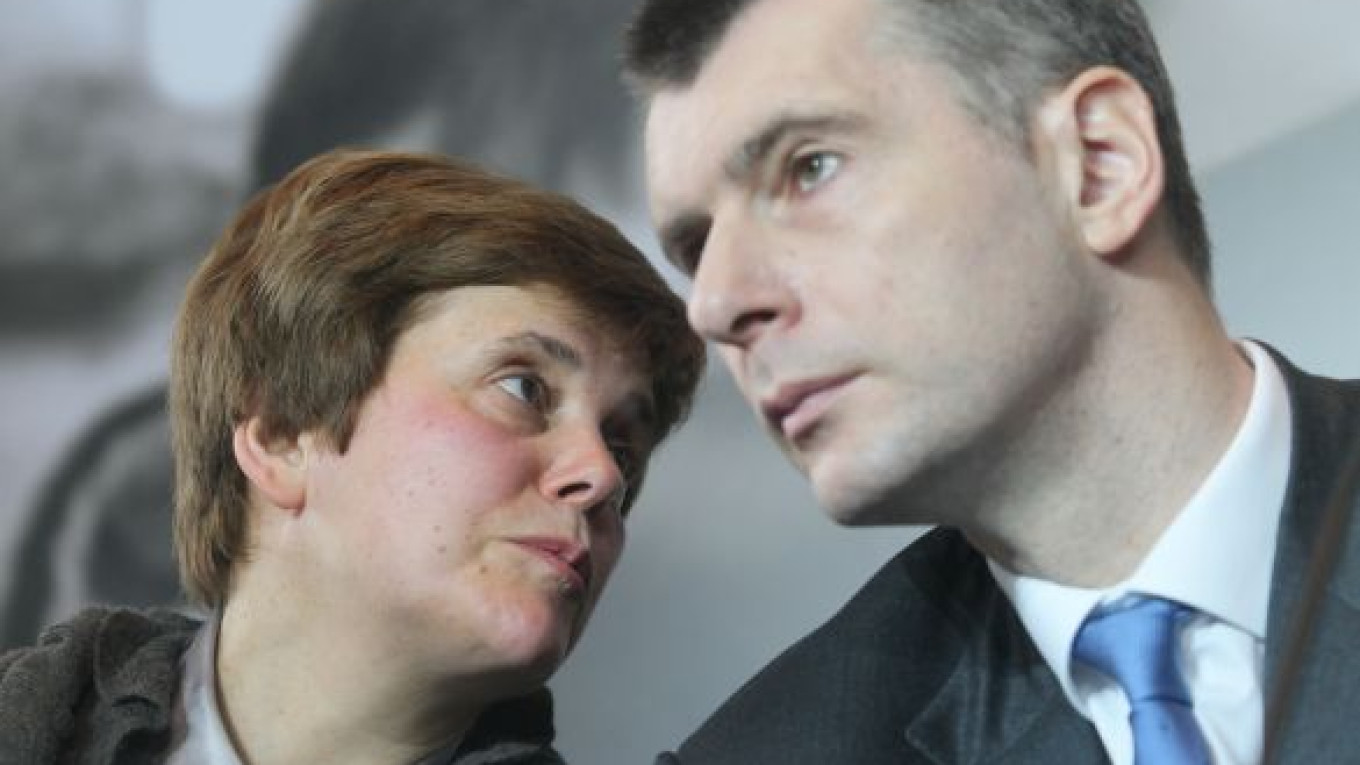The country’s rising middle class is fueling the growth of philanthropy among private individuals, participants at an annual Moscow conference said Thursday.
Aided by the Internet, the increasing numbers making charitable donations is just one knock-on effect of economic prosperity and burgeoning civil society.
The middle class “was only noticed when the protests began, but it was present before,” said Yelena Topoleva, director of the Agency for Social Information and a member of the Public Chamber.
Demonstrations in Moscow following alleged fraud during last year?€™s Duma elections are seen to have been driven by the country?€™s Internet-savvy middle class. Topoleva sported a white ribbon, the symbol of the protest movement.
But whatever the changes, the charity sector is still kept afloat by corporate social responsibility, or CSR. Business accounts for more than 70 percent of total donations in Russia compared with about 17 percent in developed countries, according to research by the Boston Consulting Group.
And there is still disagreement about how the sector should be structured, whether charitable causes should be ?€?personified?€? and rely on wealthy and powerful individuals, or whether professional charities are the way forward.
When a cause is adopted by a rich and influential person, said Konstantin Malofeyev, founder of Marshal Capital and chairman of the board of the Saint Vasily the Great fund, it can channel huge resources and has a real chance of achieving its goals. He gave the example of presidential candidate and billionaire Mikhail Prokhorov, who takes financial responsibility for the biathlon in Russia.
Others disagreed, however. ?€?To depend on the passions, fancies, hobbies or vices of rich people is less than responsible,?€? said Gleb Prozorov, a managing director at business daily Vedomosti, which organized the conference. ?€?Charity is … a professional thing.?€?
The absolute quantity of donations is significantly smaller in Russia than in other countries. In 2010, local nongovernmental organizations received an income equal to about 0.9 percent of gross domestic product. That figure is 7.5 percent in the United States and 3.8 percent in France.? ?
Such heavy reliance on corporate donations imposes certain limitations on charities. Companies frequently look to leverage their core business when selecting philanthropic endeavors. One of the projects of mobile operator MTS, which has an annual CSR budget of about $7 million, is to pay the phone bills of cancer charity Podari Zhizn.
Other large companies focus on ?€?social investment?€? — involving anything from extra support for employees to infrastructure projects ?€” rather than addressing a particular problem or cause. Oil major Bashneft, for example, only does CSR in its home region of Bashkortostan.
Participants at the annual event said philanthropy has not yet fully emerged from the 2008 economic crisis ?€” when businesses slashed overall budgets. Many companies currently focus on cost-saving forms of CSR, said Marina Mukhina, program director at the Charities Aid Foundation in Russia. This includes emphasizing activities in which employees volunteer their time for worthy causes.
A Message from The Moscow Times:
Dear readers,
We are facing unprecedented challenges. Russia's Prosecutor General's Office has designated The Moscow Times as an "undesirable" organization, criminalizing our work and putting our staff at risk of prosecution. This follows our earlier unjust labeling as a "foreign agent."
These actions are direct attempts to silence independent journalism in Russia. The authorities claim our work "discredits the decisions of the Russian leadership." We see things differently: we strive to provide accurate, unbiased reporting on Russia.
We, the journalists of The Moscow Times, refuse to be silenced. But to continue our work, we need your help.
Your support, no matter how small, makes a world of difference. If you can, please support us monthly starting from just $2. It's quick to set up, and every contribution makes a significant impact.
By supporting The Moscow Times, you're defending open, independent journalism in the face of repression. Thank you for standing with us.
Remind me later.


